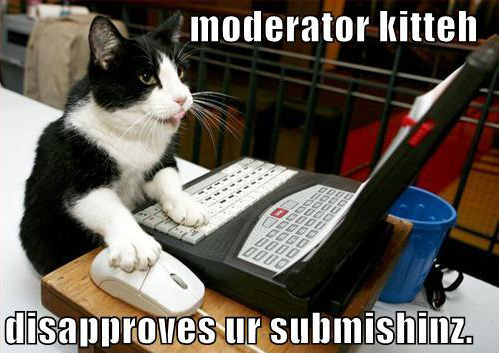Anonymous Social Networks: Too Big To Succeed?

With the very recent debut of a number of anonymous social networking apps and websites, a vigorous debate has begun about the perils and merits of anonymous digital venues.
Critics would have us believe that trolling, porn, and bullying are endemic to the experience, while boosters trumpet the importance of innovation, free speech, and the benefits of venting. Unfortunately, amid all the hype a basic and important point seems to be largely understated; the responsibility of the venue for moderating content.
Related Article: Anonymous Social Networks
The Importance of Moderation
In the last few weeks we’ve seen the announcement of anonymous apps including Secret, Yik Yak, Banter, and Cloaq, which each provide users with the ability to share their thoughts with others without the requirement that they provide their genuine identity. While these apps each have some form of moderation in place and guidelines intended to promote civility, it is unclear whether any have made a strong enough commitment to preventing abuse.
Once Pandora’s Box has been opened, it’s often nearly impossible to regain control and lost users.
As anyone familiar with digital social venues knows, strict guidelines and uncompromising moderation are essential for maintaining the focus and value of the space. Moderation must be in place from day one and all users must clearly see up front that there is zero tolerance for violating the rules. The history of social networking is filled with projects that quickly fell apart due to a lack of focus on moderation.
What Not To Do
A solid example of trying to put a bandage over a bullet hole is the recent move by Yik Yak to prevent it’s use by middle and high school students. Facing backlash from an entire school district Yik Yak felt compelled to address concerns over bullying on their app. Their solution: exclude users with a geo-fence, or by location. Of course, this doesn’t prevent these kids from simply waiting to use the app when they are home.
This situation highlights a problem faced by any project attempting to offer anonymous social networking on a large scale:
You either take a hands off attitude about moderation and deal with problems as they arise, basically ensuring chaos, or you spend a lot of money on moderation staff to rapidly delete content that violates your guidelines.
While some of these apps have been securing significant investments, it’s unclear how much of that money will be devoted to moderation staff.
Not Biting Off More Than You Can Chew
A number of these apps allow people to report rule violators. This would seem to be a solid solution to trolling and abuse. However, this solution is only as good as the number of people you have deleting content and how quickly they can do so. A slanderous post only needs to be up for a very short time to do real damage, and so quick moderation must be a priority.
Anonymous social networking projects need to consider the potential scale of their project relative to the time and money they can invest in moderation.
Unfortunately, many bloggers and media taste makers writing on the topic of this recent trend of anonymous social networks appear to be sold on the idea that it’s not possible to run such an app or website in a responsible manner. Given the evidence available and recent news on the topic that might seem reasonable. However, while there are significant challenges, identifying strategies for effective moderation would certainly be more responsible than throwing the baby out with the bathwater.
Takeaway?
One possible conclusion to be drawn is that anonymous social networks either need to be smaller and serve niche communities or at a larger scale need to invest more time and money in moderation. However, regardless of scale, strict moderation is critical, and it’s important for opinion makers to clarify the distinction between failure to moderate and the value and benefits of what is shaping up to be a interesting and engaging new form of social interaction.

An interesting contrast between critic and booster can be seen over at slick new site called Medium.com.
On the one hand we have:
Secret: A Safe Haven, which lauds the site for the unique experience of providing the self regulation of anonymous friend relationships.
On the other hand we have:
Why I Deleted Silicon Valley’s Hottest ‘Secret’ App, in which the author questions the basic premise of anonymous social networks and the extent to which they tend to reward the most salacious content.
Each have valid points. The difference may simply be the interest each has in the benefits of anonymous social networks and the patience each has with their drawbacks.